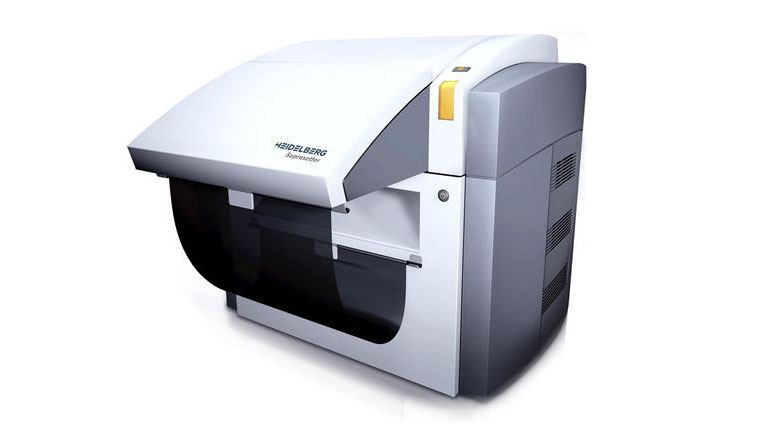
I had a client call me this week about a $120,000 piece of equipment which was no longer working. The device in question was a Heidelberg Platesetter which employed a Dell Workstation to run the software which controls the platesetter. The dell workstation would not boot
The PlateSetter machine is crucial to the business as without plates no hardcopy forms could be printed.
CTP (Computer to Plate) is a streamlined process of print production. Streamlined in that takes a finalized file from a computer and outputs it directly to a plate. The plates are made from a variety of materials ranging from aluminum to polyester. Once the plate is imaged, it can be used on the press.
Dell Precision Workstation
The software controlling the platesetter was a dell precision workstation running Windows 7 64 bit , now some 10 years old, and on examing the Event Viewer Logs there were many I/O Controller errors and the drive in question while visible in Disk Manager was not detected as a drive with a filesystem. Closer inspection revealed the drive was SAS drive sitting behind a Raid Controller. I ran HDTune Pro on the machine but could not retrieve any SMART info , I could however run a scan on the drive using HDtune which indicated the drive had bad sectors.

Perc H310 Raid Controller
Because the data on the failed drive was crucial to operation of the platesetting software a decision was made to attempt to clone the drive and see if we could recover the data. This process had inherent issues as we were trying to clone a drive sitting behind a very proprietary RAID controller.
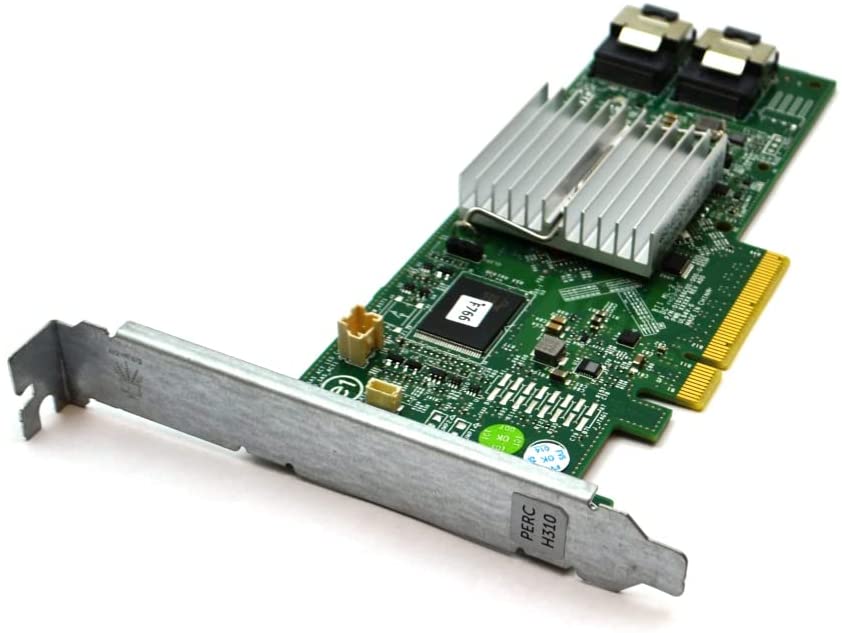
ST9146853SS Seagate 146-GB 15K 2.5 6G DP SAS
A picture of the failed drive in question, there are 3 of these drives sitting behind the Dell Perc H310 raid controller. The drives are configured in passthrough or JBOD mode and were setup with maximum drive through put in mind when running the platesetter system.

System Rescue CD
The best way to try and clone this drive is to use the SystemRescue distro which is an Arch-based Linux system on a bootable USB drive, and is designed for repairing a system and recovering data after a crash. It contains many useful system utilities (GNU Parted, PartImage, FSTools) and some basic ones (editors, Midnight Commander, network tools). It aims to be very easy to use. The kernel of the system supports all of today’s most important file systems, including ext2, ext3, ext4, ReiserFS, Reiser4FS, btrfs, XFS, JFS, VFAT, NTFS, ISO9660, as well as network file systems, such as Samba and NFS.
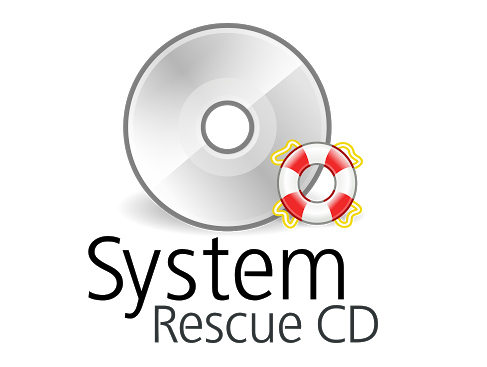
Because this needed to be done onsite I needed to create a bootable USB drive with the latest System Rescue CD iso. I always use a program called Belena Etcher which is easily the best tool for creating bootable Linux distros on USB.
Once I was onsite the first hurdle was to ensure the USB drive would boot on the Dell Precision workstation which thankfully was a success see pic below.
I prefer to work with System Rescues graphical interface, as shown below.
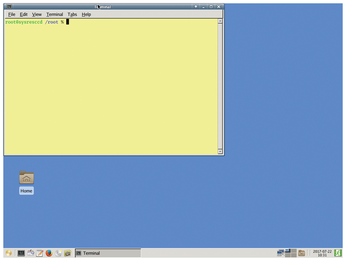
There are 2 tools on the system rescue cd which can allow us to take a clone of the failed seagate drive.
The first Testdisk will recognise any storage devices attached to the system and display them as per the picture below. And happily are 3 drives attached to the Perc Raid controller as individual drives.
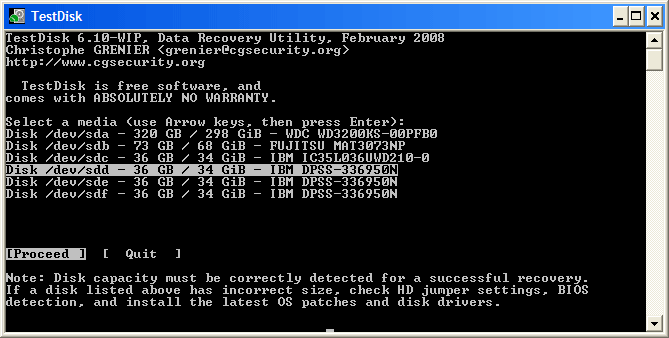
Now the that the drive was detected I could use my second tool the cloning program DDRESCUE.
DDrescue allows us to recover from drives with bad sectors by using various techniques such as Trimming and Scraping.
DDrescue will wait until it has retrieved all good blocks and only bad blocks will be left and will then try to read them sector by sector to recover every good sector within every bad block. In this case there were 84 bad blocks in total but after cloning the NTFS file system could now be read.
We could now successfully rebuild the Platesetting software.
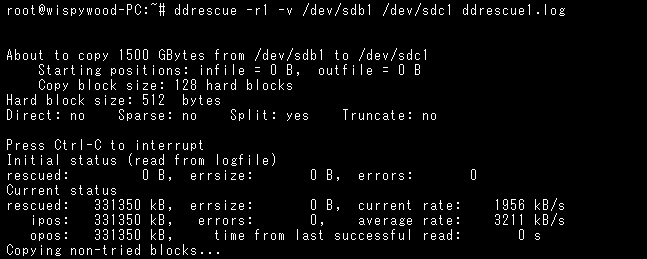
For more information on our Data Recovery Services
REQUEST A QUOTE
Address
126 Whatley Crescent Maylands
call:(08) 6180 6959
126 Whatley Crescent
6 Days a week from 8:00am - 5:00pm
